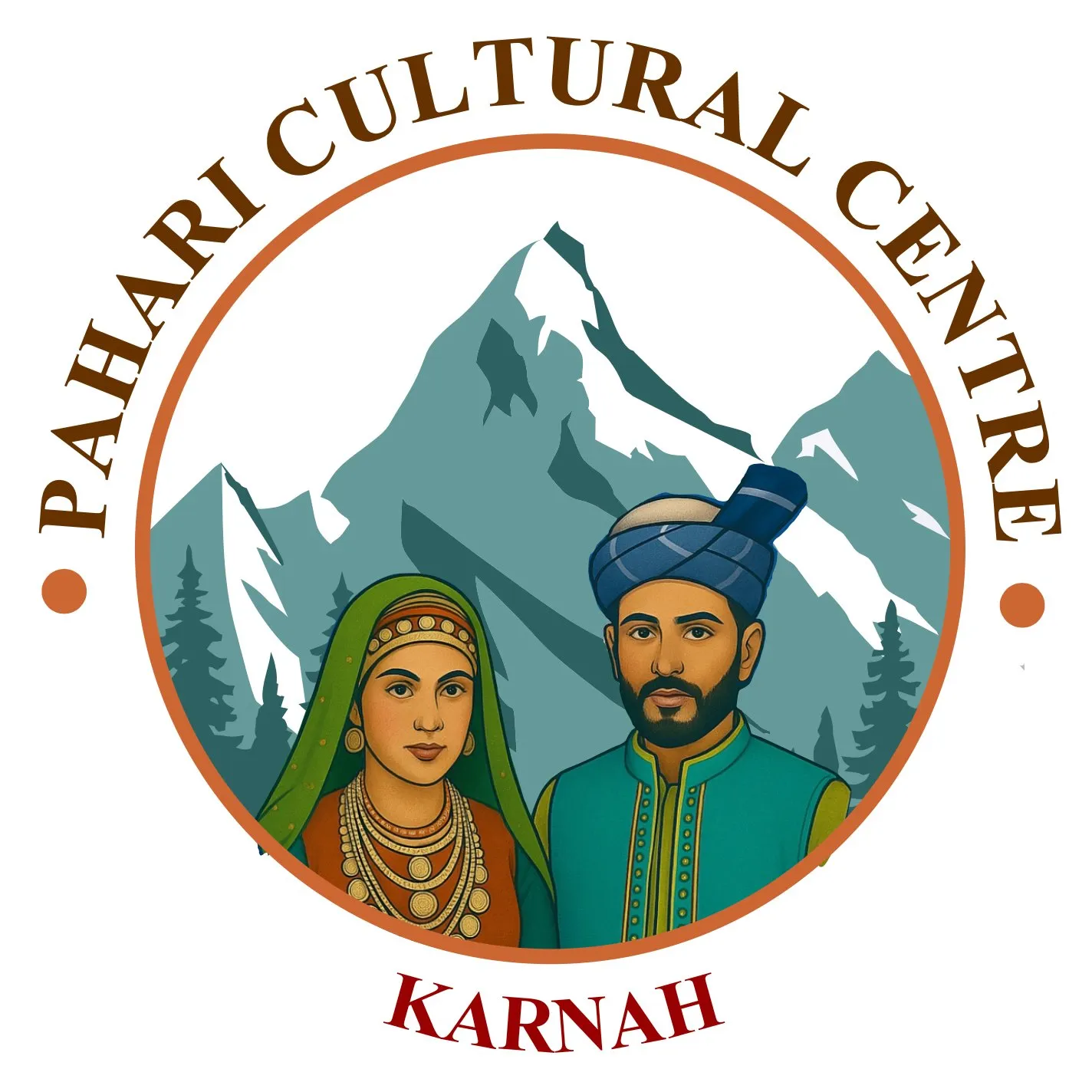Pahari Way of Life
The Social Fabric of the Pahari Tribe
The Pahari Tribe in Jammu and Kashmir and other northern states like Himachal Pradesh, Uttarakhand and Haryana follows a distinctive social life characterized by a strong sense of communal living. They have a closely knit social fabric that emphasizes mutual support and interdependence. The social customs, rituals and kinship ties play a vital role in shaping their way of life.
They have unique way of life, where most of the people are dependent on agriculture and cattle farming for their livelihood. Highlanders use woollen clothes out of sheep wool by Shearing and further weaving by handloom to make their daily clothes like Pahari pattu, chadar, shawls.
Pahari women are examples of those who have preserved and continued the Pahari legacy apart from their histories and struggles. They are the real drivers and are intricately involved in economic, social, political and cultural life in addition to taking care of home and also keeping their traditions alive.
Pahari people are known for their strong sense of social harmony, which is an integral part of their cultural identity. This sense of togetherness fosters social harmony and cooperation. Community events, festivals and cultural gatherings are celebrated with enthusiasm, fostering a strong sense of unity in diversity. The shared Pahari language also plays a role in binding the community together, as language often reflects common cultural values and experiences
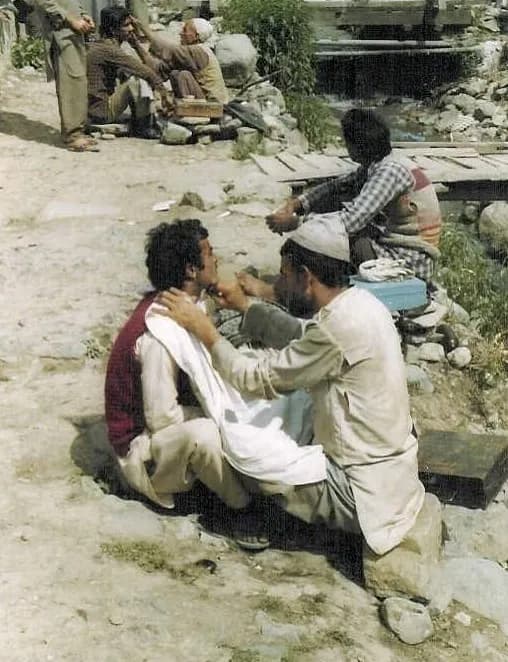
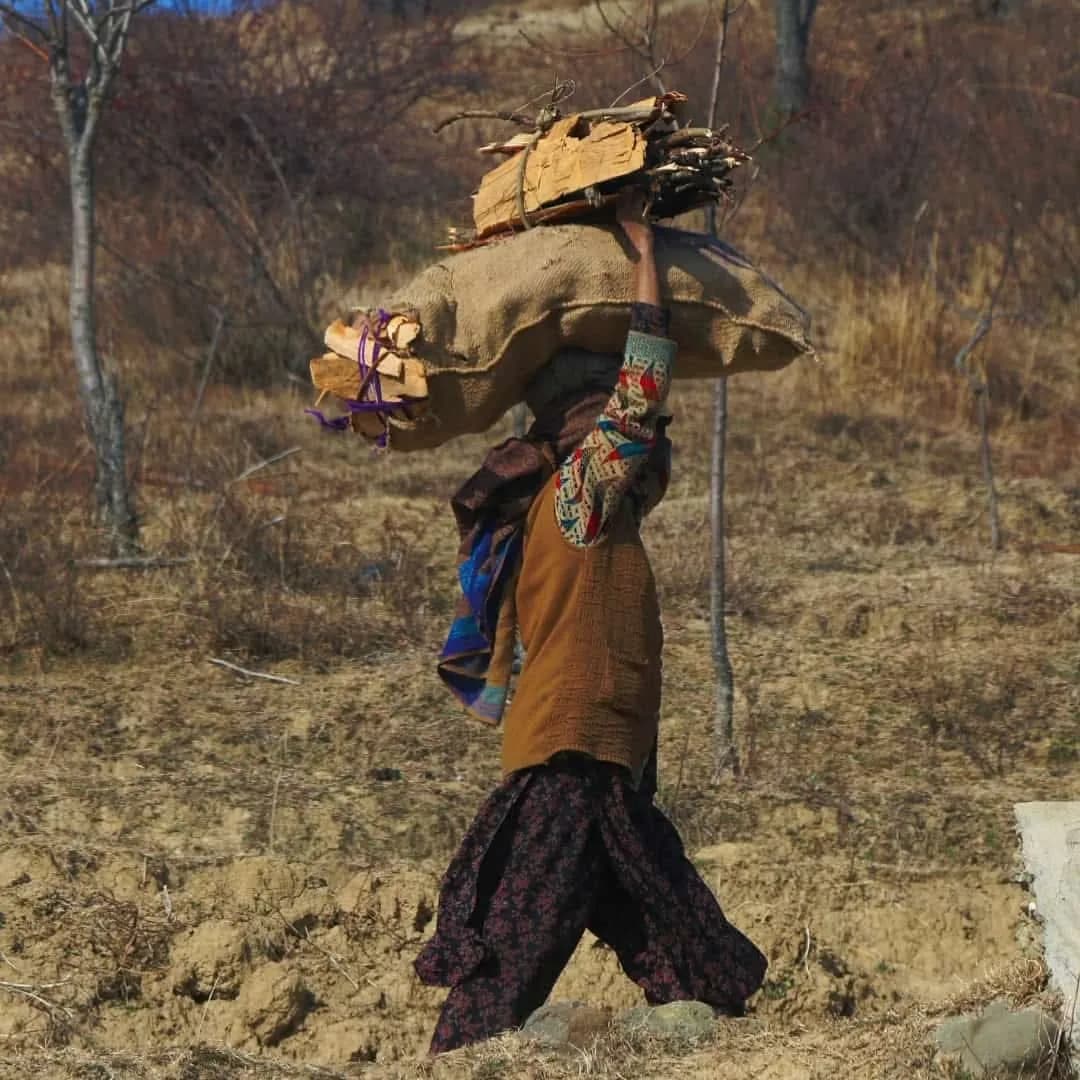
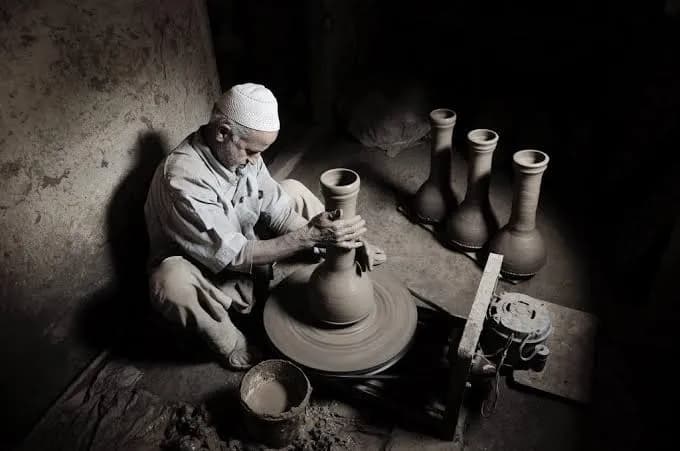
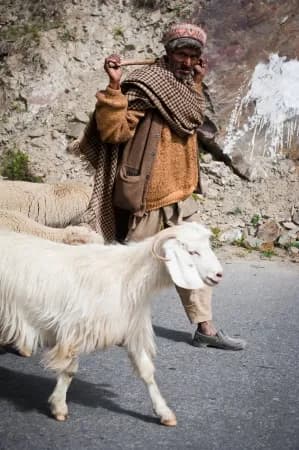
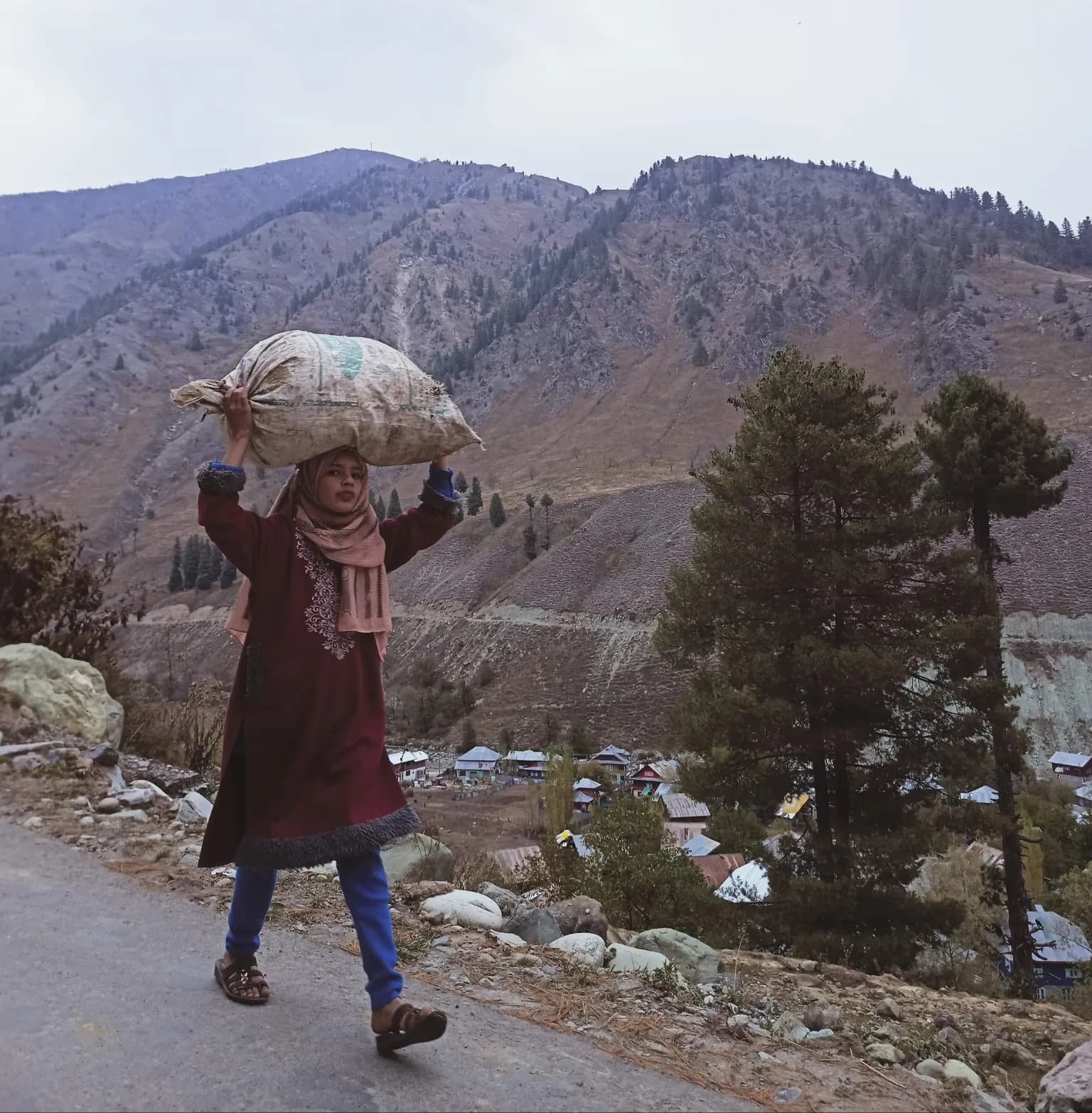
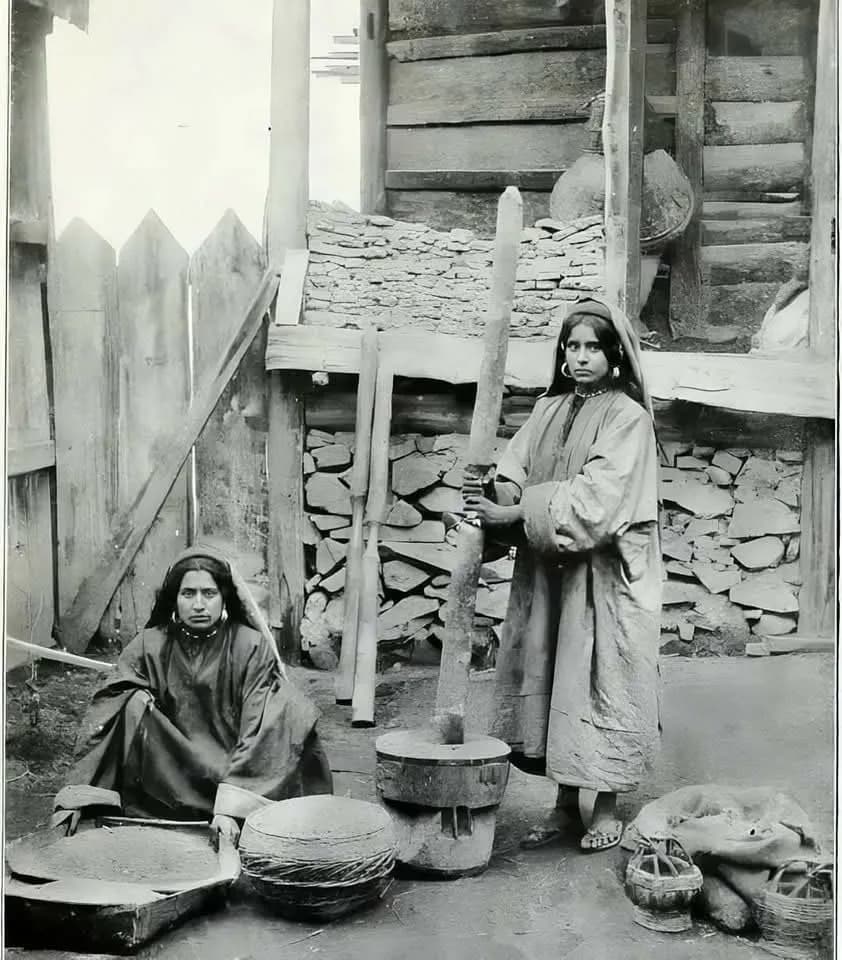
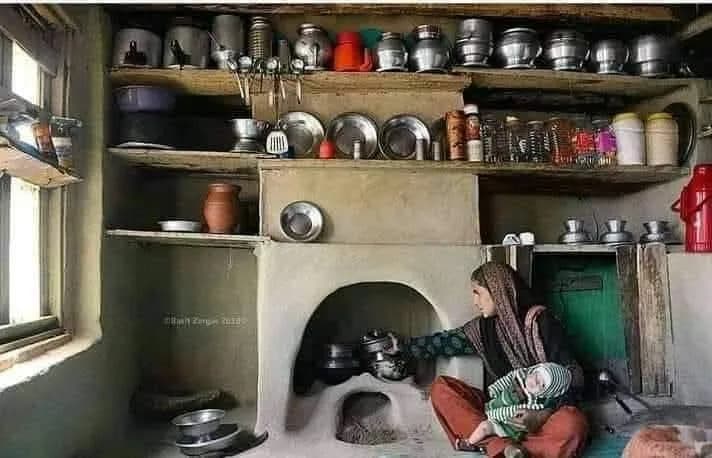
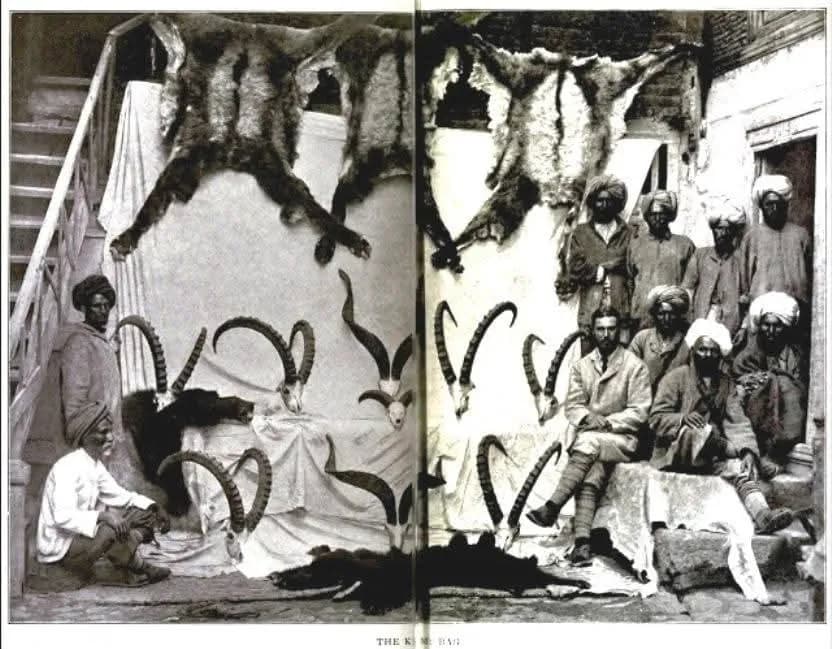
Contemporary Rhythms of Paharis of Jammu and Kashmir
The contemporary life of the Paharis of Jammu and Kashmir is marked by their resilience and adaptability. While embracing elements of modern life, they continue to cherish and uphold their cultural identity and traditions, creating a harmonious blend of old and new in their daily lives. This fusion of traditional and modern elements illustrates the community's adaptive approach to balancing cultural identity with the necessities of the time.
Before road connectivity, daily life for the Pahari Tribe in remotest valleys like Karnah, Uri, Keran and Machil was characterised by isolation and a heavy reliance on traditional modes of travel. People primarily travelled on foot and by horseback, navigating challenging mountain terrain like Sadhna Pass, Pir ki Gali (Mughal Road) to reach their destinations. These routes were crucial links, often used for trade and movement.
The challenging hilly terrain also complicates access to schooling/education. Despite these challenges, the youth of the Pahari-speaking community have shown resilience. Through hard work, some have successfully competed at the state level, securing placements in professional courses, UPSC and civil services.
While life has become somewhat easier with advancements in various aspects, there is an underlying concern about cultural isolation. The Pahari people, while adapting to modern conveniences, remain vigilant about preserving their unique cultural heritage. The fear of cultural isolation highlights the delicate balance they navigate between embracing progress and safeguarding the rich tapestry of their traditions, customs and identity that define the essence of their community.
The present day Pahars of Pir panjal breath hot and cold in the same breath, on one hand the people are happy with the transformation, easement of life, more connectivity, modernisation and on the other hand loss of tradition is felt bad about. The tales of loss of tradition is narrated with a heavy heart. The people aspire for the preservation of tradition and culture and the return of those who have migrated so that discourse can start within the community for the preservation of the Pahari identity. The Pahari culture and structural aspects have experienced various changes and adaptations over time, influenced by historical, social and political factors.
